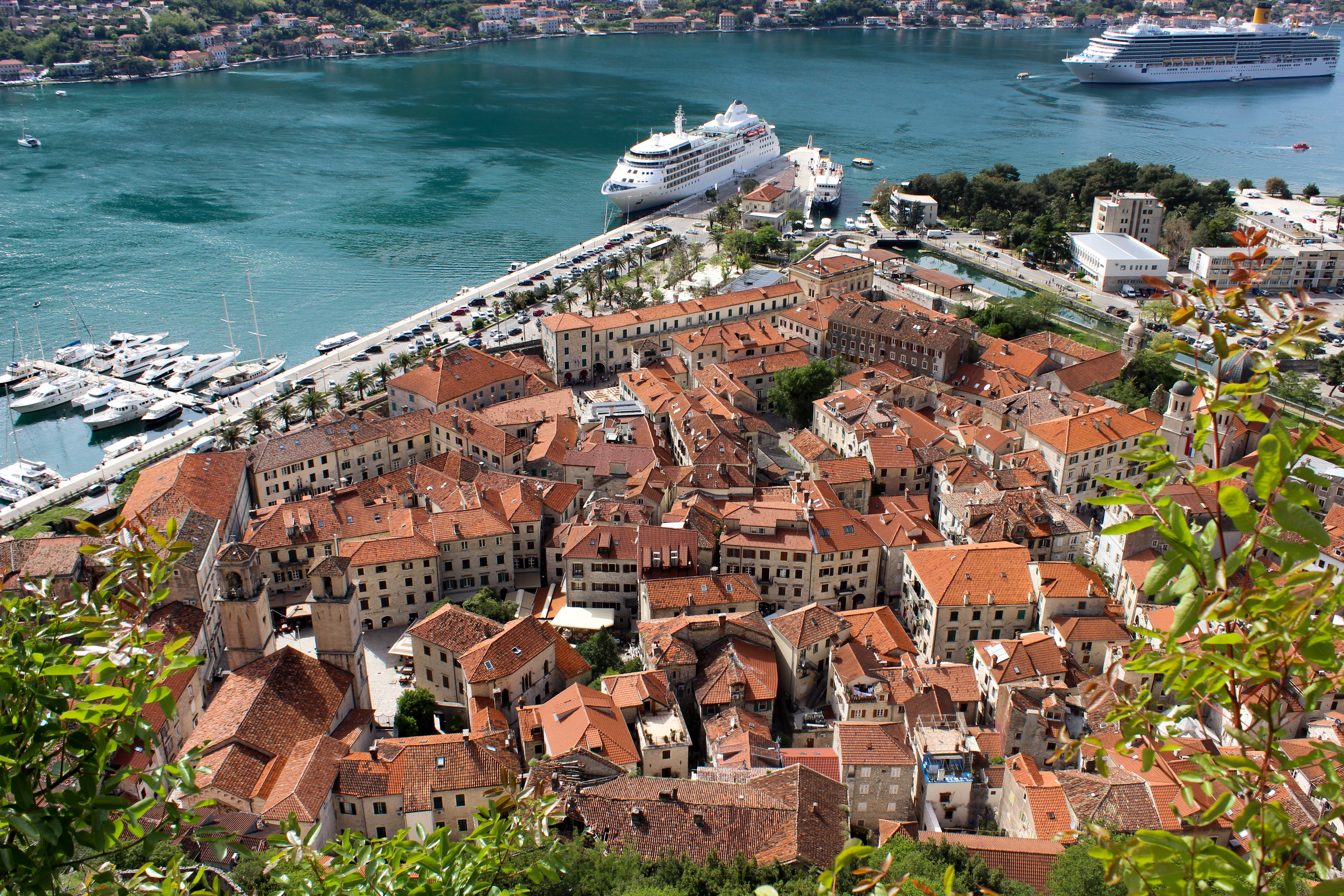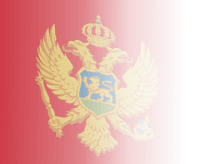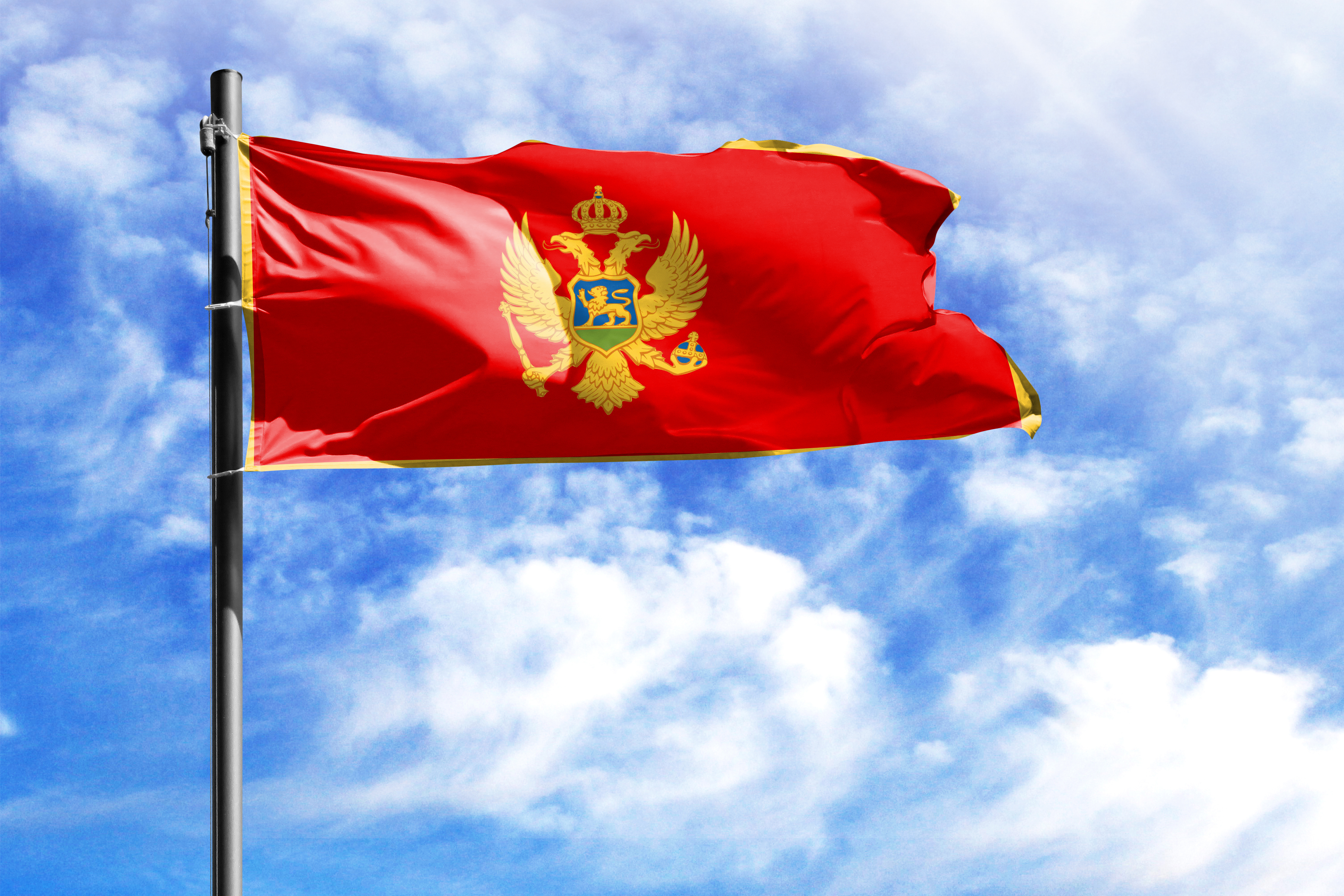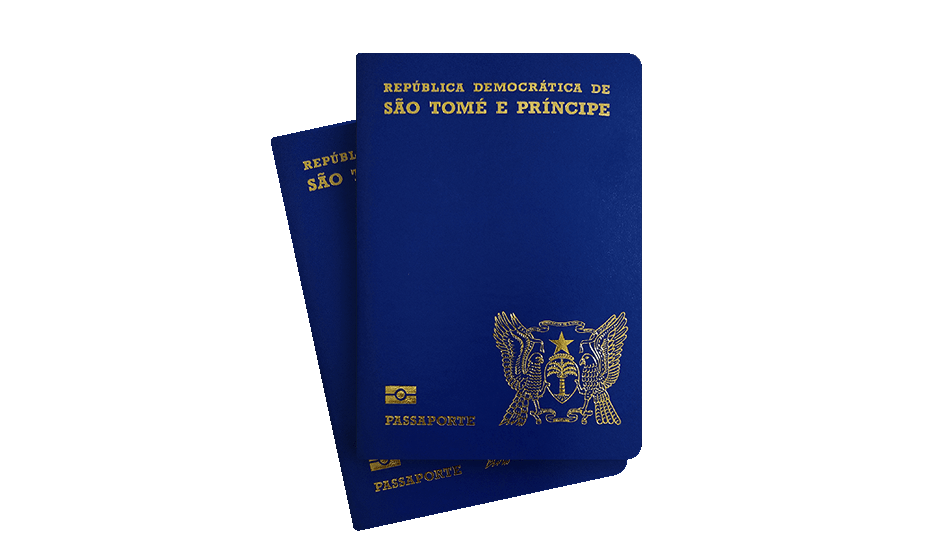Montenegrin citizenship is a steady legal bond between an individual and the state, irrespective of their background, governed by the Law on Citizenship No. 13/2008 (Montenegrin Citizenship Act). In 2025, a Montenegrin passport can be obtained through birth, descent, or naturalization (by registering for a residence permit through investment, purchasing real estate, opening a business, or other means). The main requirements are knowledge of the language and an unblemished record of compliance with the country’s laws.
Citizenship in Montenegro allows a person to reside and work permanently in the state, travel visa-free to 123 countries worldwide (excluding the Schengen area), and enjoy other benefits. This article will cover everything you need to know about obtaining Montenegrin citizenship.
Find the fastest and most effective way during with a specialized lawyer.
Benefits of Montenegrin citizenship
Citizenship in Montenegro allows you to live in Montenegro permanently and enjoy full rights as a citizen:
- Visa-free entry to over 120 countries;
- No residence requirements to maintain citizenship;
- Registration with a Montenegrin passport and an E2 business visa in the USA, which is not available to citizens of all countries;
- The prospect of obtaining EU citizenship and its privileges, as Montenegro is a candidate for accession to the European Union;
- The right to vote in elections and hold public office;
- Enjoy benefits and social support.
Requirements for Montenegro citizenship
The process for obtaining a Montenegrin passport differs depending on the chosen pathway, as do the conditions and required documents. The following are the general requirements that applicants must meet. The citizenship policy in Montenegro is governed by strict legal and administrative rules that vary based on the applicant’s origin and legal grounds for immigration.
Citizenship application requirements
Basics of immigration requirements:
- Reaching 18 years of age;
- Renunciation of original citizenship in favor of Montenegrin citizenship;
- Legal and continuous residence in Montenegro for ten years;
- Proof of available housing and permanent income;
- No criminal record for more than one year;
- Proficiency in the Montenegrin language at a level necessary for communication;
- Regular payment of taxes and no relevant debts;
- Not posing a threat to the security of the population.
Montenegrin citizenship will not be granted to individuals engaged in illegal activities or those who retain their first nationality, unless they are investors. An open criminal record, tax debts, a lack of language skills, or an absence from the country for one year prior to application can lead to refusal of citizenship.
Required documents
A basic list of documents needed to apply for Montenegrin citizenship includes:
- Birth certificate;
- A photocopy of the internal passport;
- Marriage certificate (if available);
- Confirmation of renunciation of current citizenship;
- Proof of legal residence in Montenegro;
- Certificate verifying a place of residence in the country;
- Certificate of employment/pension statement or other proof of a stable source of income;
- Certificates of no criminal record for more than one year, issued in Montenegro and the country of primary citizenship;
- Certificate from the Montenegrin Examination Center demonstrating language proficiency;
- Certificate from the tax office confirming proper tax payments.
Legal ways to acquire Montenegro citizenship
According to the Montenegrin Law on Citizenship, citizenship may be granted for the following reasons:
- Kinship or family ties;
- Employment;
- Doing business;
- Real estate purchase;
- Investments;
- Marriage or family reunification;
- Refugee status.
Foreigners need to correctly select the basis for immigration and fulfill all legal requirements to acquire citizenship.
Here are some of the opportunities that a Montenegrin residence permit can offer you:
- Doing business in a country with one of the lowest tax rates in Europe: 9%;
- Simplified processing of Schengen visas for two to five years;
- Residency status for your spouse and children under 18 years of age;
- European Union citizenship.

Leave an application and get a consultation specialist
Citizenship by descent or birth
Montenegrin citizenship by descent can be assigned in one of the following cases:
- Both parents were Montenegrin nationals at the time of birth;
- The applicant was born in Montenegro with one parent being a Montenegrin citizen;
- The applicant was born outside of Montenegro with one parent holding a Montenegrin nationality and the other parent’s citizenship status being unknown or irrelevant;
- One parent is a Montenegrin citizen and the applicant has not taken the citizenship of the country in which he/she was born;
- Adoption by a Montenegrin national.
Citizenship by birth is granted to all persons born or found on the territory of Montenegro if the parents are either unknown or stateless. Montenegrin citizenship is automatically granted to children of Montenegrin citizens regardless of their place of birth. Additional documents needed in these cases include the applicant’s birth or adoption certificate and the parents’ passports.
Neither the parents nor the child can obtain citizenship through childbirth in Montenegro. However, if the nationality of the parents of a person born in Montenegro is not established, then there is a way to obtain citizenship.
Citizenship by naturalization through employment
One of the options for naturalization is immigration through work. A foreign citizen must obtain a temporary residence and work permit (dozvola za privremeni boravak i rad), which is valid for 12 months and can be renewed. Upon arrival in the country, the foreigner submits an application to the Ministry of Internal Affairs office together with the following documents:
- A written job offer from an employer;
- Diploma;
- Qualifications proof;
- The results of a medical examination.
The review period is 20 days. Within a week of issuing the permit, the employer must sign a contract with the employee. Renewal of this type of residence permit must be done 30 days before the current permit expires. After five years of residence and permanent (not temporary) employment, a permanent residence permit can be issued. After another five years, you can become a citizen of Montenegro. In addition to the general package of documents, you must provide a certificate from your place of employment and your permanent residence permit card.
Business immigration path
Foreigners can obtain a Montenegrin passport by starting a business. It is necessary to register a new company in which the applicant owns at least 50% of the authorized capital and is employed as a managing director. Creating jobs or contributing to the development of the country’s economy is not a requirement. You can register a company remotely through a licensed lawyer or in person at the Central Register of the Commercial Court.

To obtain a one-year residence permit, you will need the company’s statutory documents. Provided that taxes are regularly paid (9% of income) and accounting records are kept, the residence permit can be renewed. Creating jobs or contributing to economic development is not a requirement. Citizenship is possible through the standard naturalization procedure after ten years of residence in the country.
Citizenship by real estate investment
Although obtaining Montenegrin citizenship by buying real estate worth less than EUR 250,000 is not possible, purchasing real estate allows you to get a one-year residence permit that can be extended as long as you are the owner of the property. There are no minimum value requirements.
However, this method of immigration has one disadvantage: restrictions on the type of property purchased. Foreigners can buy houses, apartments, offices, and restaurants in Montenegro, but not agricultural land, forests, or properties in border areas. Purchasing plots of land larger than 5,000 m² is also prohibited. The purchased property must not have any encumbrances, such as mortgages or missing building permits. You can request citizenship through the purchase of real estate in Montenegro after 10 years of total legal residence in the country with a residence and permanent residence permit.
Still have questions
Ask a migration lawyer for free

Citizenship by investment program
The Montenegro citizenship by investment program was valid until December 31, 2021, but is now no longer available. Through this program, the government offered foreigners the “Grant + Investment” model. The grant is a €100,000 charitable contribution to a state fund intended for developing small regions. The second part is an investment in government-approved real estate or businesses in any region of your choice:
- North of Montenegro: from EUR 250,000;
- South, including Podgorica: from EUR 450,000.
The program terms provide for additional costs for due diligence and fees. Applications are submitted remotely through a licensed agent. You must provide documents confirming the legal origin of your funds. An advantage is the fast procedure duration. Within three weeks of the investment date, the applicant is issued a residence permit, and three to six months later, citizenship. Holders of the “golden passport” are not required to renounce their previous citizenship; investors can have dual citizenship.
The government of Montenegro officially ended the program in 2021 but continues to offer residence permits for investors under standard procedures.
Citizenship by marriage or family reunification
According to Article 11 of Montenegro’s Law on Citizenship, individuals in a spousal relationship with Montenegrin citizens are eligible for a passport after five years of permanent residence instead of ten. The main condition is that the couple must have been married for at least three years at the time of application. The grounds for staying in the country are irrelevant. In this case, the general package of documents is expanded to include a marriage certificate and a document confirming five years of residence.
Another immigration option for foreign citizens is the family reunification program, which grants a one-year residence permit that can be extended. Spouses and minor children (including adopted children) of citizens and temporary residents of Montenegro may apply for a residence permit. A residence permit is not issued to foreigners who have entered into a fake marriage. Temporarily employed individuals cannot send an invitation. After five years, foreign relatives can obtain permanent residence and, after the same period, citizenship. To the general list of documents, evidence confirming kinship or family ties is necessary.
Citizenship through refugee or humanitarian status
Foreigners may be granted citizenship through immigration to Montenegro in the following cases:
- The applicant has suffered domestic violence or has been a victim of human trafficking;
- A minor has been abandoned or left without parents for any reason;
- Justified humanitarian reasons, such as military action, persecution, or harassment.
Victims may enter Montenegro without a visa if they immediately apply to the border control point or police station upon arrival with a relevant statement. The foreigner will be granted a residence permit for 3 to 12 months, extendable if the reasons for refugee status persist. They will also have the right to work, study, use health insurance, and receive financial support from the state. After ten years of residence in the country, including five years with permanent residence status, one may obtain Montenegrin citizenship upon presenting proof of refugee status along with the general list of documents.

How to apply for Montenegro citizenship: step-by-step guide
The standard procedure for obtaining Montenegrin citizenship by naturalization consists of four steps:
- Obtaining a visa. Typically, this is a long-term type D visa, which is applied for at the consulate or embassy. The visa is required to cross the Montenegrin border. Within 24 hours of arrival, foreigners must register at a police station.
- Obtaining a residence permit. A residence permit is mandatory for all individuals intending to stay in the country for more than 90 days. Applicants must submit the required documents in person to the Department of the Ministry of Internal Affairs at their place of residence. While the application is being processed, foreigners can safely stay in the country, even if their visa expires during this time. Typically, a residence permit is issued for 12 months at a time, and can be extended.
- Applying for permanent residence. After five years of legal residence in Montenegro, an immigrant has the opportunity to apply for permanent residence. During this time, the foreigner is allowed to be out of the country several times for a total of 10 months or continuously for 6 months. The status is valid for five years and can be renewed.
- Applying for citizenship and obtaining a Montenegrin passport. After five years of permanent residence, the foreigner can submit an application to the Ministry of Internal Affairs in person or through an authorized person. Application review up to 12 months. Prior to this, it is necessary to renounce the first citizenship, as the legislation of the country only allows dual citizenship in exceptional cases. Applications for passports are submitted to the Department of Civil Status and Personal Documents at the place of residence. During this period, the applicant’s two fingerprints will be taken. The passport is valid for ten years, after which it must be updated.
There are exceptions to obtaining Montenegrin citizenship through marriage or investment. For those who obtain citizenship through marriage, it is possible to acquire citizenship after three years of residence with a residence permit instead of five. For investors, the process is significantly shorter — they are immediately issued a residence permit and granted citizenship after three to six months. Investors also do not need to renounce their current citizenship status.
Dual citizenship in Montenegro and other countries
According to Montenegro’s nationality law, dual citizenship is not allowed unless the applicant participated in the Montenegro Citizenship by Investment Program or there is a bilateral agreement between Montenegro and the applicant’s country.
Currently, Montenegro has no such treaties with other countries, so citizens of most countries will have to give up their first passport. The country is actively discussing the signing of such an agreement with Serbia, but no consensus has been reached yet.
If the country’s authorities do not require immigrants to provide information about their first nationality, they can have several passports, and each state will consider them only as its nationals — in other words, they will have second citizenship. In Montenegro, immigrants are deprived of their passports for concealing information or keeping their previous citizenship. Therefore, it is impossible to have Montenegrin citizenship and citizenship of any other country at the same time.
Montenegro is an interesting and promising country that provides its citizens with social protection, rights, visa-free travel, and security. Foreigners need to correctly select the basis for immigration and fulfill all legal requirements to obtain citizenship.
















